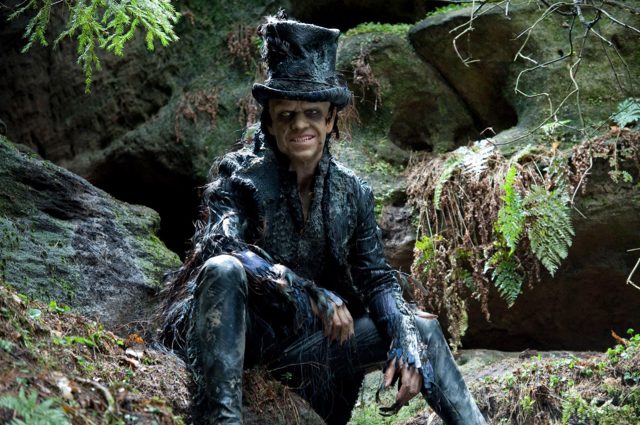Showing @ Cameo Cinema, Edinburgh until Thu 28 Feb
Tom Tykwer, Andy Wachowski, Lana Wachowski / Germany/USA/Hong Kong/Singapore / 2012 / 172 min
Freed by technological advances in cinematography, works of literature previously believed to be “unfilm-able” (like Life of Pi) can now be adapted for the big screen. Directed by Tom Tykwer and the Wachowski siblings, David Mitchell‘s award winning 2004 novel is the latest of these books to be transposed into celluloid. Cloud Atlas weaves together six outwardly unconnected plot-lines set in a variety of periods and locations. Despite the physical separations, the film exposes the similarities between the characters and the situations, showing how the actions of one storyline can resonate through the others.
By virtue of the plot’s varied locations (geographical and periodical) Cloud Atlas seems to transcend a specific genre, instead encompassing them all in a singular melting-pot presentation. The narrative’s slightly rehashed elements (investigative journalist on the run, peaceful villagers harried by warring tribesmen) are offset by fresh and inventive story-lines that drown the clichés in an ocean of intrigue. A veritable smorgasbord of visuals is proffered, the imposing futuristic architecture of the dystopian metropolis ‘New Seoul’ looms above the action almost taunting the character’s futile resistance. This is counterbalanced by a near pastoral island panorama untamed by mass infrastructure swallowing humanity’s impact with great swathes of natural landscaping. The numerous roles of the cast across the varied story-lines creates an affinity between the different narrative arcs emphasising the interconnected, butterfly effect consequences of our actions. It also twists differences in personality and characterisation into similarities of persecution and defiance reinforcing the premise of a desired harmony between humanity.
No one particular storyline stands out as dominant. In fact they’re edited together so as to equally support and be supported by each other creating a balance between the narratives that makes each as compelling as the next, (an example of equality the morally questionable characters could perhaps venerate). At times the theme of equality feels like an unrelenting barrage of moral conscience, (escaped slave, emancipated drone-worker) so that in moments it seems like a wake up call directed at oil tycoons, political dictators and others whose ethical consciences are failing. But while the film is undoubtedly a statement highlighting the negatives of maltreating minorities, it doesn’t champion a vengeance style vendetta (as is often Hollywood’s manner). Instead it actively seeks to display the similarities between us as a species, putting dubious actions into perspective and promoting a harmonious and positive mindset by showing the detrimental or beneficial effects our decisions can have on the present and future.
Follow Callum on Twitter @CWMadge
